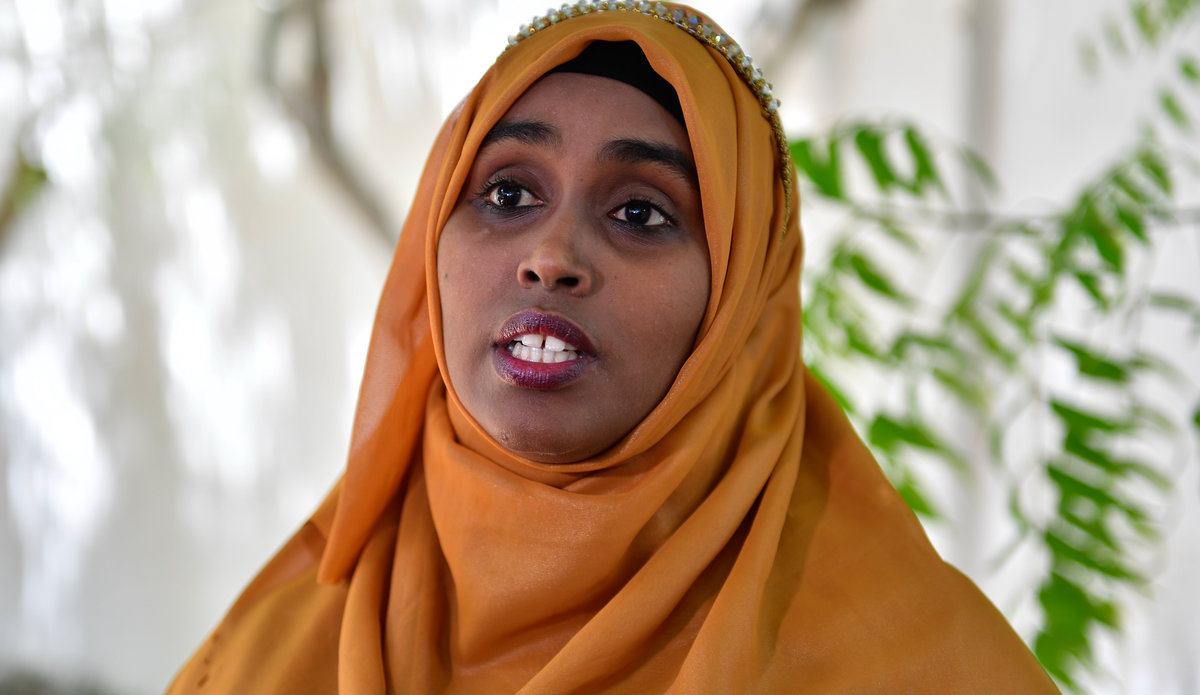Young Somali woman seeks a greater role for youth in peacebuilding
Naima Adan Elmi champions the youth cause through the Save Somali Youth Organization (SASOYO), a non-governmental organization she founded in 2009.
“The youth form the biggest part of the Somali population, yet most of them have no jobs and no means of livelihood,” Naima explains. “This destitution, which forces youth into crime and other negative practices, prompted my colleagues and me to act.”
Naima believes that Somali youth should contribute to the peace and development of their country. For this wish to become reality, she says youths should be educated and master a variety of skills.
"In a country recovering from decades of war, peace is of utmost importance going forward. Somali youth must be at the centre stage in the peacebuilding process," notes the 33-year-old activist.
“At SASOYO we equip the youth, especially young women, with skills and encourage them to participate in politics.”
SASOYO was instrumental in mobilizing young Somalis to participate in the 2016-2017 electoral process, with the aim of increasing their numbers in the Federal Parliament.
About 18 per cent of the members of the current bicameral parliament are under the age of 35, which represents an important advance for young people in Somali politics. A strong believer in young people as agents for change, Naima has been engaged in several youth empowerment projects.
“We organize workshops and participate in radio and television talk shows to sensitize the youth on the dangers of female genital mutilation, early marriage and violent extremism. We also advocate against young people taking the perilous journey across the Mediterranean in search of greener pastures in Europe,” Naima says.
With a membership of 1,000 youths, SASOYO has a presence in Mogadishu, Galkaacyo, Baidoa, Belet Weyne and Kismaayo.
With SASOYO’s support, youths acquire vocational skills such as tailoring and basket weaving. The proceeds made from the sale of these items are ploughed back into their businesses or used to support the organization’s projects, which include literacy classes in which 40 young women are currently enrolled.
Naima takes an optimistic view of what the future holds for the youth in Somalia.
“I see a Somalia with an effective government and strong security institutions, capable of handling the security challenges of the country. Security and economy are the two most critical sectors that Somalia needs to fix, and then everything will fall in place,” she concludes.
The UN has officially recognized youth development as part of its mandate in Somalia. The UN recognizes the role young Somalis can play in the country's peace- and state building processes.
 UN
UN





